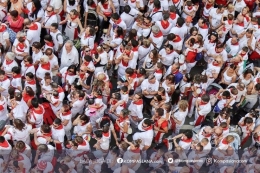If the upper rungs of the ladder are ruled by vanity, the lower ones are haunted by shame. The poor and the ignorant do not simply suffer deprivation; they suffer perception. Society treats poverty not as misfortune, but as moral failure --- as if the lack of wealth were the proof of laziness, and ignorance the mark of sin.
Thus, the poor struggle not only for survival but for dignity. They fight daily not to be reduced to caricatures of failure. Meanwhile, the ignorant, fearing the same ridicule, turn to the visible currencies of validation --- bodies, gold, and titles. They polish their surfaces to hide their emptiness.
The poor man dreams of being unseen; the fool dreams of being envied. Both are driven by the same terror: to be looked down upon.
This creates a grotesque symmetry. The oppressed internalize the values of their oppressors. The poor do not reject the hierarchy; they merely wish to switch seats. The fool does not question the cult of appearance; he joins it. Thus, the very victims of the system become its most devoted priests.
And here lies the moral irony: the more one tries to escape humiliation, the deeper one sinks into it. For the attempt to appear "worthy" according to a corrupt standard is itself the ultimate act of submission.
IV. The Irony of Dependence
There is, however, a deeper paradox --- one that undermines both pride and shame. Every human life is built on dependence. No one is self-made. We are born helpless, fed by others, educated by others, and, when the time comes, buried by others. Independence is the most seductive myth ever told by the powerful to justify their detachment.
Yet in this interdependent world, needing help has become shameful. We have romanticized self-sufficiency, as if asking for aid were a confession of weakness rather than an affirmation of humanity. The beggar on the street and the executive in the glass tower are bound by the same need --- the need for acknowledgment --- yet only one is condemned for it.
The irony is exquisite: dependence is the very fabric of human life, but pride turns it into humiliation. The world rewards the illusion of autonomy and punishes those who reveal the truth of our shared fragility.
And so, we become actors in a vast masquerade, each pretending to need nothing while secretly starving for validation, intimacy, and mercy. The poor need money; the rich need meaning. The strong need admiration; the weak need protection. Yet none dare admit it --- for to admit need is to confess humanity, and humanity has become a liability.
V. Dialectical Resolution --- The Justice of Imperfection







